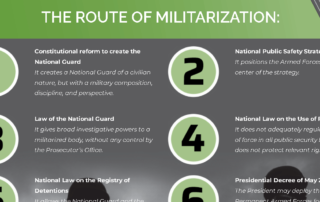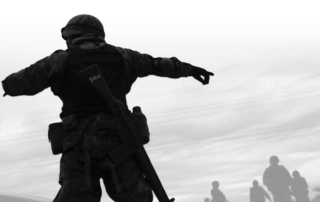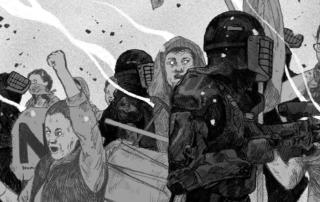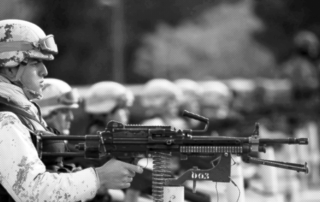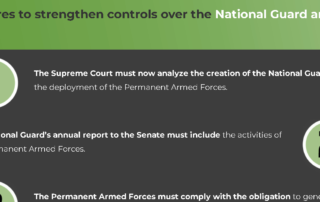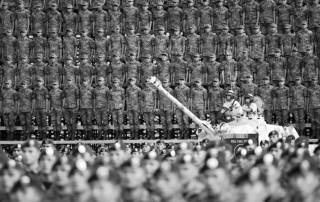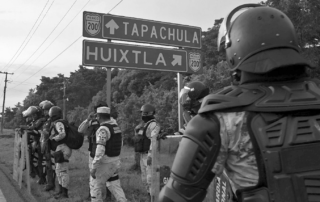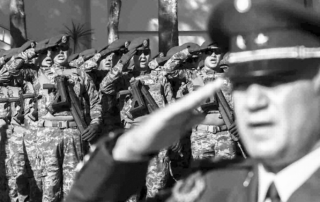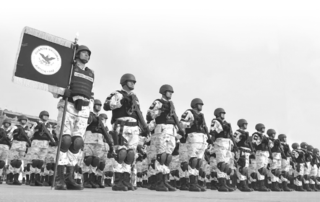Photo: Claroscuro
The risk of politicization of the Armed Forces
On November 22, 2021, the “[a]greement that instructs the dependencies and entities of the Federal Public Administration to carry out the prescribed activities, in relation to government projects and constructions considered of public interest and national security, as well as of priority and strategic for national development.”
To accelerate the construction of priority projects for the administration, with an out-of-proportion reasoning, these projects were classified to be of “public interest” and “national security.”
The “Agreement” may have an impact on human rights –especially on the right to information and transparency, the right to a healthy environment, and indigenous collective rights to territory and consultation— as several human rights organizations warned in a joint statement.
Also, this “Agreement” favors the opacity of an institution, the military, already resistant to transparency. Such an act may well encourage corruption because, as it has been proven time and again, the Armed Forces are neither unpolluted nor untouched by corruption.
Likewise, the “Agreement” shows the growing political use of legal concepts associated with “national security.” This trend is also part of a broader context of politicization of the Armed Forces.
Due to the very nature of these institutions and because of the delicate tasks that the Constitution confers on them, the elements of the Army and Navy must refrain from carrying out actions or activities of a partisan or political nature.
Certainly, given the growing prominence of the Armed Forces in recent decades, such activities have occurred in the past. In the previous administration, for example, the Secretary of National Defense openly advocated for educational reform.[1]
However, it has been striking in this presidential term that the head of SEDENA expresses his adherence to the policies promoted by the president with the same narrative that he promotes. An example of the many interventions in this regard is the speech delivered on November 20, 2021, in which the General Secretary said: “[…] as Mexicans it is necessary to be united in the national project that is underway […]. “[2].
From this discourse, the reference to the transformation of the country stands out as an open allusion to the presidential narrative. Clearly, this speech, from the commander of the Mexican Army, should not be overlooked. The military establishment should, as much as possible, refrain from active involvement in politics such as that referred to.


